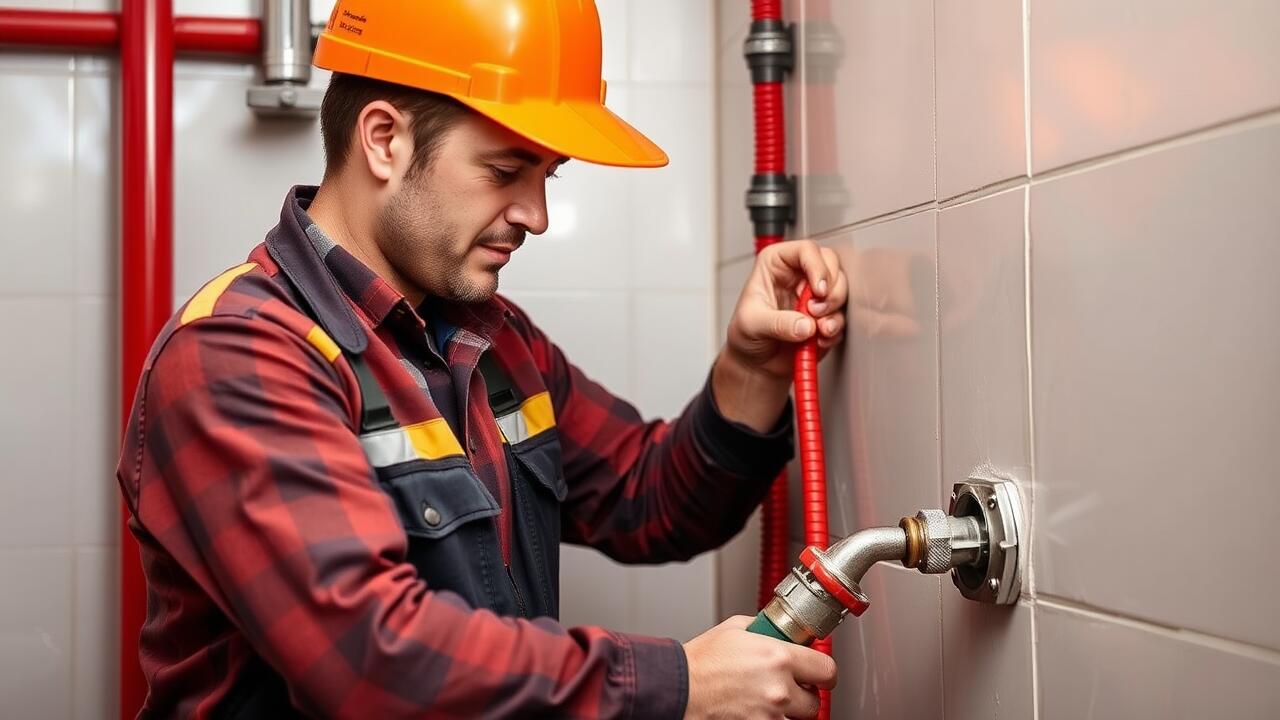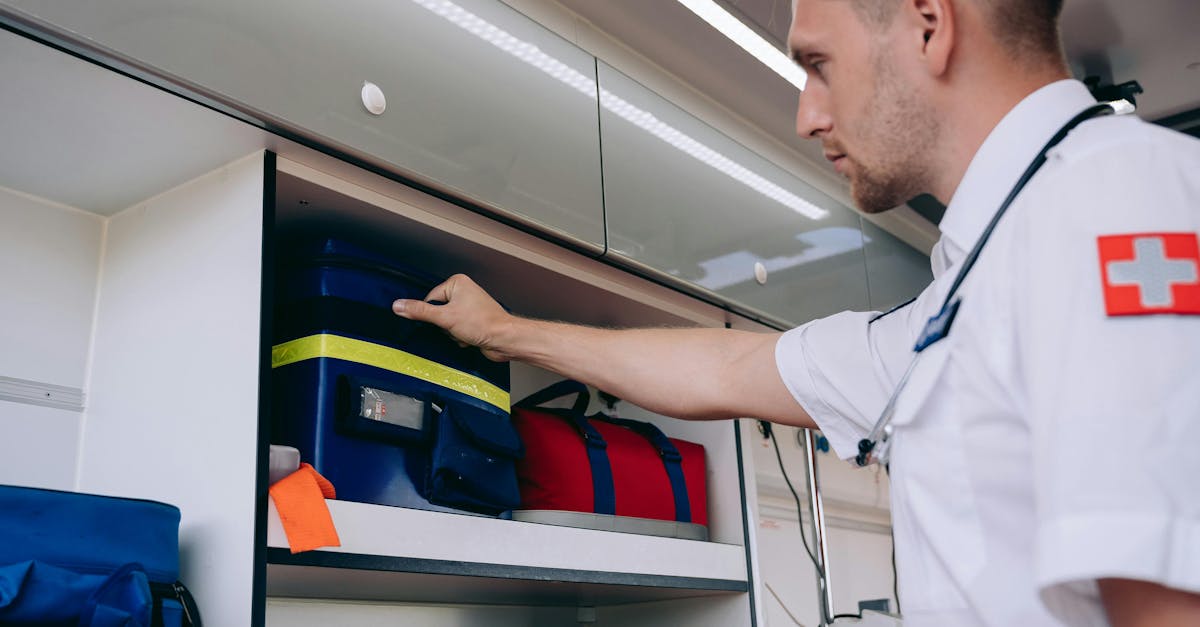
Table Of Contents
Environmental Impact
The environmental impact of hot water systems significantly varies between electric and gas models. Electric systems often rely on the grid, which in some regions is powered by renewable energy sources. However, in areas heavily reliant on fossil fuels, the carbon footprint of electric systems can be considerable. Gas hot water systems typically emit greenhouse gases during operation, contributing to climate change. The choice between these systems can thus impact both personal and broader environmental outcomes.
When considering environmental sustainability, factors such as resource extraction and energy consumption come into play. The extraction of natural gas poses environmental risks, including habitat disruption and potential water contamination. In contrast, while electric systems have a lower direct emission profile, their environmental footprint depends on the source of electricity. Engaging a qualified hot water plumber can provide insights on which system minimises environmental impact based on local energy supply and regulations.
Comparing Emissions and Sustainability
Electric hot water systems generally have a lower direct emissions profile compared to gas systems. The primary source of emissions from these electric systems comes from the power plants supplying electricity, which can vary considerably in their environmental impact based on the energy mix used. An increasing reliance on renewable energy sources is making electric hot water systems more sustainable over time. This shift is vital as it directly influences the overall emissions associated with heating water, aligning with broader efforts to reduce carbon footprints.
Gas hot water systems, while effective in providing immediate heat, produce carbon dioxide during combustion. This contributes to greenhouse gas emissions, which are a significant concern for sustainability. Regular consultations with a qualified hot water plumber can help homeowners optimise their gas systems, focusing on efficiency and minimising emissions. Sustainable practices, including proper installation and maintenance, can enhance the efficiency of gas systems, but these benefits need to be weighed against the inherent emissions during operation.
Maintenance Needs of Electric Hot Water Systems
Electric hot water systems generally require less maintenance than their gas counterparts, making them a convenient option for many households. Regular inspections are crucial to ensure the system is operating efficiently. Homeowners should also check the anode rod every couple of years, as this component helps protect the tank from corrosion. If it has significantly deteriorated, replacing it can extend the lifespan of the hot water unit.
Engaging the services of a qualified hot water plumber is essential for any major diagnosis or repair needs. They can conduct more complex troubleshooting processes and address electrical issues safely. It’s advisable to maintain a checklist of routine checks, including examining for leaks, checking the temperature setting, and testing the pressure relief valve periodically. These steps can prevent potential failures and ensure a reliable supply of hot water.
Routine Checks and Troubleshooting
Routine checks for electric hot water systems are essential to ensure optimal performance and longevity. Inspecting the thermostat settings can help identify any discrepancies in water temperature. The heating elements should also be examined for wear and tear. Over time, these components may accumulate mineral deposits, which can hinder efficiency. Regular flushing of the tank is recommended to prevent sediment build-up, which can affect water quality and system performance.
For effective troubleshooting, engaging a qualified hot water plumber can be invaluable. They can assess any unusual noises or leaks, which may indicate deeper issues within the system. It’s crucial to address problems promptly to avoid costly repairs down the line. Keeping an eye on electrical connections and ensuring safety features are operational are additional steps homeowners can take to maintain their electric hot water systems effectively.
Maintenance Needs of Gas Hot Water Systems
Gas hot water systems require regular maintenance to ensure optimal performance and longevity. Periodic inspections help identify issues such as leaks, corrosion, or sediment buildup. Homeowners should check the pressure relief valve and ensure that the flue and ventilation systems are functioning properly. Engaging a hot water plumber for annual servicing is essential. They can thoroughly inspect the system, clean components, and make necessary adjustments.
In addition to routine checks, addressing minor repairs promptly can prevent major malfunctions. Gas systems might need burner cleaning, which should be performed by a professional to ensure safety. Homeowners should also be vigilant about the condition of the gas supply lines. A qualified hot water plumber can detect leaks and other potential hazards that might arise, ensuring the system continues to operate safely and efficiently. Regular attention to these maintenance practices not only extends the lifespan of the system but also protects the household from potential gas-related risks.
Key Maintenance Practices
Routine maintenance for gas hot water systems is crucial for optimal performance and safety. Regular inspections should include checking the burner and heat exchanger for any signs of wear or blockage. A hot water plumber can provide expert guidance on whether components need cleaning or replacing. Additionally, examining the flue for proper ventilation is essential to prevent dangerous gas leaks.
Another key practice involves monitoring the pressure relief valve, as its failure can lead to dangerous situations. Testing this valve periodically helps ensure it operates correctly and can prevent excessive pressure build-up. A hot water plumber can assist with this process, making certain all aspects of the gas system comply with safety regulations and function effectively.
FAQS
What are the main differences between electric and gas hot water systems?
The main differences lie in their energy sources, efficiency, environmental impact, and maintenance needs. Electric systems use electricity to heat water, while gas systems rely on natural gas or propane. Electric systems can be more energy-efficient, whereas gas systems often have lower operational costs.
Which hot water system is more environmentally friendly?
Electric hot water systems can be more environmentally friendly, especially if powered by renewable energy sources. Gas systems produce emissions during operation, which can contribute to air pollution and climate change. However, the environmental impact can also depend on the energy sources used for electricity generation and the efficiency of the systems.
How often should I perform maintenance on my hot water system?
Maintenance frequency can vary depending on the type of system. Generally, both electric and gas hot water systems should undergo routine checks at least once a year to ensure they are functioning properly and to address any potential issues before they become significant problems.
What are some common issues with electric hot water systems?
Common issues with electric hot water systems include thermostat malfunctions, heating element failures, sediment buildup, and electrical issues. Regular maintenance can help identify and resolve these problems early.
Are gas hot water systems more expensive to maintain than electric ones?
Gas hot water systems may have higher initial installation costs but can be cheaper to operate in the long run due to lower fuel prices. However, they may require more frequent maintenance and checks to ensure safe operation, which can add to the overall maintenance costs.





























